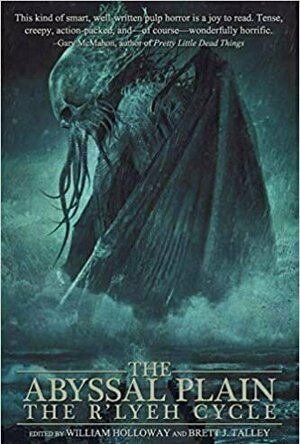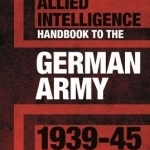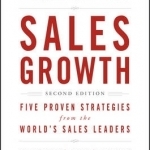Purple Phoenix Games (2266 KP) rated Munchkin in Tabletop Games
Jan 6, 2020
In Munchkin games, you are trying to become the first player to reach 10th Level. That’s the goal. You take on the persona of a 1st Level basic human (no Starbucks jokes please) who will be adventuring with a party of your opponents through a dungeon. You will be kicking down doors, fighting monsters, placing curses on your fellow party members, and buffing yourself with cards featuring funny art and punny references. Your party mates are also trying to achieve 10th Level and will do everything they can to block your progress, so be prepared!
DISCLAIMER: This review is not for a specific game within the Munchkin universe, but for the system as a whole. All Munchkin games will pretty much use similar, if not exactly the same, rules to play the game with minor variations and different theming. I will be using The Good, The Bad, and The Munchkin for my review as it is one of the two versions I still own of the franchise. Also, I will not be detailing every rule in the book(s), but giving a brief overview of how the game plays. -T
Setup is easy: shuffle the deck of Door cards and the deck of Treasure cards. Deal cards to the players for their opening hands and keep the included die handy.
Your turn consists of just a few phases: Open a Door, Look for Trouble, Loot the Room, and Charity. To Open a Door, flip over the top card of the Door deck. If it is a monster you must fight it or run. If not a monster, you can move on to the next phase. If it IS a monster, prepare for combat. Combat is simple in that you add up all your bonuses from your gear cards you have attached to your character and try to beat the strength of the monster. Your party mates can screw with you during combat by adding strength to the monster or adding monsters to the fight to make it a more difficult encounter. If you win, you gain a Level on the spot. Some monsters are worth even more than one Level. If you did not encounter a monster, you will add the non-monster card you drew to your hand and you may Look for Trouble by playing a monster card from your hand to initiate a combat. This fight will work the same way and you will be susceptible to pile-ons as before. You may Loot the Room if you defeated a monster on your turn by drawing Treasure cards equal to the printed reward on the bottom of the monster card you defeated. If you defeated the monster yourself, unaided, these are drawn in secret. If you were given help by your mates then you may have to split up the loot per any agreements made. These cards are usually very advantageous to you so they are usually very valuable to others as they attempt to steal away your goods. If you did not fight a monster yet this turn, you may draw another secret card from the Door deck to add to your hand. Should your hand size climb above your limit (dictated by your Race card, if any) you will slide into the Charity phase to relieve your hand of extra cards. Give all excess cards to the player of lowest Level, or split them among those that share the lowest Level. It is now the next player’s turn and you continue play until someone reaches 10th Level.
Components. It’s a bunch of cards and one die. The cards are of okay quality. Nothing to write home about. The die is nice with one of the faces having the Munchkin logo head imprinted on it. It will also have a color scheme that matches the version of Munchkin you are playing, so it’s easy to match them back up if they become integrated with each other. Overall, the components are fine, but not wonderful. That’s probably why these are pretty inexpensive to purchase.
Okay, so like I said earlier the original vanilla Munchkin was the first hobby board game I ever purchased. My friends and family had no idea hobby games existed, so there was actually a pretty steep learning curve for us. Once we figured it out, however, we began to play it a ton and really love it! The cards are cute, the game play is pretty easy if you have played hobby games before, and the puns kept us rolling for a good while. There was a time when I owned every version of Munchkin in circulation and we never even played half of them. Seeing this I got rid of them through BGG Auctions. I have The Good, The Bad, and The Munchkin and Munchkin Zombies right now and I feel that will be plenty for me from here on out – unless they make a Doctor Who or Firefly set or something /*checks warehouse23 to find out if these are available/.
Do I still love Munchkin? No, not really. I LIKE it, but I don’t really want to play it all the time any more. Why? Well, as my gamer experience increases and I level up, my game tastes also level up. I see why people enjoy and even love this game system. I myself loved it for a time. But there are better games out there that accomplish the same feelings without being as sophomoric and have better choices to be made. Will I still play these games? Heck yeah! If someone asks to play a Munchkin game I am all in. I have different tastes and preferences now, but I’m no snob. Just come prepared, because I won’t go easy on you.
We at Purple Phoenix Games give this family of titles a backstabby 16 / 24.

iMissal Catholic (Mass Reading, Calendar, Lectionary)
Reference and Lifestyle
App
With over 4,000 5-Star Reviews, we hope that you will agree that iMissal is the #1 Catholic App. ...

The Abyssal Plain: The R'lyeh Cycle
Book
With The Abyssal Plain, Holloway and Talley have managed to transform the Cthulhu Mythos into...

Allied Intelligence Handbook to the German Army 1939-45
Book
What did the British or American soldier know about the German Army? Was this knowledge accurate -...

Sales Growth: Five Proven Strategies from the World's Sales Leaders
McKinsey & Company, Inc., Thomas Baumgartner, Homayoun Hatami and Maria Valdivieso de Uster
Book
The challenges facing today's sales executives and their organizations continue to grow, but so do...
Kyera (8 KP) rated Wintersong in Books
Jan 31, 2018
This dire warning and her later choices set her on a journey to the Underworld. It is dark, earthy and primal, full of creatures that Liesl does not understand or trust. The land itself is well-described and forms itself within the reader’s mind. Though you would never hope to call it home, it has its own ancient and crude form of beauty.
The characters are unique, although generally not faceted or well-developed in their personalities. Perhaps our main character just does not know them as well as she believes, for her view is quite flat. Her sister, Kathe is beautiful and cares only about similarly pretty and frivolous things. Her brother, Josef is a talented musician who fears his music is a “gift” from the Devil. Her grandmother is superstitious, her mother hard-working and aloof, and her father a drunk. Sadly, we don’t get to see or experience any depth of personality, nor are they given the chance to develop over the course of the novel. As our main character is in the Underworld, the lack of development is understandable which is why I wish they were more fleshed out initially.
Liesl herself is a strange mix of traits with her love of music and composition, intense lack of confidence and anger stemming from her belief that she is ugly and unwanted. Her choices are both selfish and selfless. She is a mass of contradictions and broken beliefs. While she is an interesting character, I don’t find her to be particularly relatable. I didn’t connect with any of the characters in the novel, although I enjoyed the story itself. I’m sure there are others who would find similarities between themselves and one of the characters, making this book more impactful.
Finally, the Goblin King himself – who seems to be like two people in one. At times, we see the younger, more open man that he was and could be again while at others the cold, quick to anger Trickster of the Underworld is at the forefront. More intriguing than his present is his story, you wonder how did he become the Erlkonig? For he is not the first, nor shall he be the last. He is more human than his subjects and thus this difference is what fascinated me. I wanted that story, more than him demanding Liesl in her “entire” and her being unable to give of herself, fully, yet.
It was an interesting story even though I didn’t particularly care for the characters. I recommend this book for older young adult/teen readers who enjoy fantasy and fairytale books. The writing is very poetic and beautifully descriptive. I don’t regret reading this book, but I also wouldn’t personally go out and buy a physical copy of it for my shelf.

Letterland Stories A
Education and Book
App
Go on a reading adventure with your Letterland friends! Carefully designed imaginative stories which...

American Marxism
Book
The seven-time #1 New York Times bestselling author, Fox News star, and radio host Mark R. Levin...
Quality Software Through Reuse and Integration
Stuart H. Rubin and Thouraya Bouabana-Tebibel
Book
This book presents 13 high-quality research articles that provide long sought-after answers to...
Gareth von Kallenbach (980 KP) rated The End Of The Tour (2015) in Movies
Aug 6, 2019
So there is the summary. And it tells you what this movie is about. However what that summary does not tell you is the depth of emotion to which both Jason Segel and Jesse Eisenberg deliver in their performances.
Jesse Eisenberg gives a performance that we come to expect from the Oscar nominated actor. Not only can you feel, but you can also and understand his curiosity and jealousy towards Segel’s success. A less successful writer, he wants the notoriety that Segel has. So much so, that he is constantly trying to find the holes in Segel’s persona under the guise of an interview and yet is forced to ponder the things that Segel is saying to him.
Jason Segel’s portrayal of David Foster Wallace is not understated by the word phenomenal. I was skeptical that Segel would not be able to deliver a dramatic performance of this caliber, but I am glad to say I was wrong. He steals every scene he is in and his performance is so deep and thoughtful that Jason Segel himself disappears and we are instead left with a performance of what I will always believe David Foster Wallace was like in real life. This performance is one of the best I have seen this year and I believe he will receive an Oscar nomination for this role. I was fascinated with Segel’s performance that I actually downloaded David Foster Wallace’s book Infinite Jest on my drive home.
Performances aside, this movie is not for everyone. If you are looking for an inactive cinematic experience then this film is not for you. This film makes you think. It is like being a part of a deep conversation with friends trying to make sense of the world. It brings perspective to the society we live in and the loneliness we find ourselves trying to avoid while clinging to meaningless things that bring us simple pleasure. A simple way of living where we go from A to B to C to find meaning, only to obtain those things and then not knowing what we do next. But for those who are looking to escape the mundane summer blockbusters and want to see stellar performances, be sure to check this one out.



